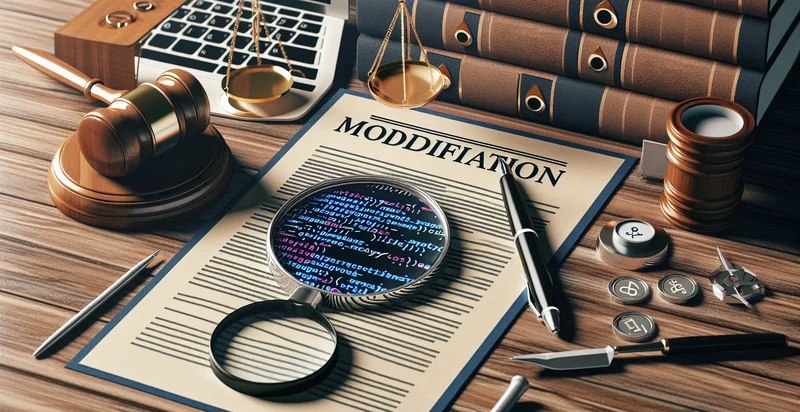Identify modification legality
using AI
Below is a free classifier to identify modification legality. Just input your text, and our AI will predict if the modification is legal - in just seconds.

Contact us for API access
Or, use Nyckel to build highly-accurate custom classifiers in just minutes. No PhD required.
Get started
import nyckel
credentials = nyckel.Credentials("YOUR_CLIENT_ID", "YOUR_CLIENT_SECRET")
nyckel.invoke("modification-legality", "your_text_here", credentials)
fetch('https://www.nyckel.com/v1/functions/modification-legality/invoke', {
method: 'POST',
headers: {
'Authorization': 'Bearer ' + 'YOUR_BEARER_TOKEN',
'Content-Type': 'application/json',
},
body: JSON.stringify(
{"data": "your_text_here"}
)
})
.then(response => response.json())
.then(data => console.log(data));
curl -X POST \
-H "Content-Type: application/json" \
-H "Authorization: Bearer YOUR_BEARER_TOKEN" \
-d '{"data": "your_text_here"}' \
https://www.nyckel.com/v1/functions/modification-legality/invoke
How this classifier works
To start, input the text that you'd like analyzed. Our AI tool will then predict if the modification is legal.
This pretrained text model uses a Nyckel-created dataset and has 2 labels, including Race Only and Street Legal.
We'll also show a confidence score (the higher the number, the more confident the AI model is around if the modification is legal).
Whether you're just curious or building modification legality detection into your application, we hope our classifier proves helpful.
Related Classifiers
Need to identify modification legality at scale?
Get API or Zapier access to this classifier for free. It's perfect for:
- Contract Review Automation: This function can be employed by legal tech applications to automatically classify contracts based on their compliance with modification laws. It streamlines the review process, allowing legal teams to focus on high-risk documents that require manual examination.
- Regulatory Compliance Monitoring: Businesses can utilize the modification legality identifier to ensure that their ongoing operations comply with relevant modification regulations. This helps prevent costly legal penalties and ensures that all modifications made to services, products, or contracts align with current laws.
- Risk Assessment Tools: Financial institutions can implement this technology to assess the legality of modifications in loan agreements or securities. By automating the classification of legal terms, organizations can better manage risk and ensure that contractual changes do not violate regulatory requirements.
- Data Privacy Compliance: Companies handling personal data can leverage the identifier to review changes in data processing agreements. By ensuring that modifications are legally compliant, businesses can protect themselves from data breaches and associated legal ramifications.
- E-Discovery Support: Law firms can enhance their e-discovery processes with this classification tool to sift through an extensive volume of documents. By identifying documents related to modification legality, legal teams can efficiently gather relevant information for ongoing litigation.
- Product Development Compliance: Companies involved in manufacturing can use the modification legality identifier to review and classify changes made to product specifications. This ensures that modifications comply with industry regulations and safety standards, thereby reducing liability risks.
- Internal Policy Updates: Organizations can automate the review of internal policy changes to ensure compliance with modification laws. This not only minimizes the risk of policy violations but also enhances organizational governance and employee awareness of compliance issues.


